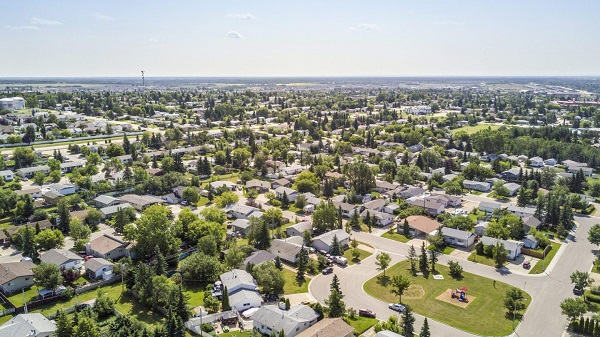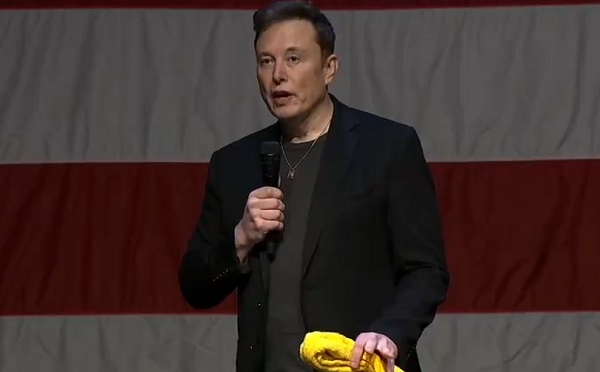Alberta
Cenovus replies to low-blow from Norway’s trillion dollar oil fund

From Cenovus Energy
Canada targeted (yet again) as a scapegoat for global climate change challenge
Alex Pourbaix, President & Chief Executive Officer, Cenovus Energy

The recent decision by the Norwegian wealth fund, Norges, to pull its investments in Cenovus Energy and three of our oil sands peers is another example of Canada being used as a pawn by institutions attempting to earn climate points. But these announcements are motivated more by public relations than fact. The data they used to assess Cenovus’s greenhouse gas performance is outdated and incorrect.
Here’s what Norges failed to consider in its decision. Cenovus has reduced the emissions intensity of our oil sands operations by approximately 30 percent over the past 15 years. We’ve set ambitious targets to reduce our per-barrel emissions by another 30 percent across our operations by 2030 and hold absolute emissions flat during that time. We are also focused on innovation that will help us achieve our aspiration of net zero emissions by 2050. Our peers have similar emissions reductions achievements and commitments.
The hypocrisy of the move by Norges is particularly rich, given the sovereign wealth fund amassed its $1 trillion value primarily from oil production profits. Moreover, Norway’s former energy minister is on record saying the country will produce oil for as long as oil is used. Energy is important to Norway’s economy, as it is to Canada’s.
The oil and natural gas industry accounts for the largest share of Canada’s exports and is the most significant contributor to the country’s gross domestic product. This country is amassing a huge deficit as a result of the COVID-19 response, with the parliamentary budget officer suggesting our national debt could hit $1 trillion. That’s more than $26,000 for every man, woman and child in Canada. Key to reversing this unprecedented debt load will be secure and stable tax revenue to support the economic recovery. Canada’s energy sector has contributed an average of $8 billion annually to provincial and federal government coffers and its strength is fundamental to ensuring this country emerges from the downturn stronger than ever.
Yet, the Canadian oil sands have become an easy target for primarily European investment firms and insurers who have made a big splash announcing they are severing ties with Canadian companies. Pulling out of the oil sands earns these firms headlines but doesn’t have an impact on their business because most of them were not heavily invested in Canada. Canada’s oil sands have long been the poster child for the anti-oil movement. It’s easier to attack a country that has a regulatory system designed to ensure transparency on its environmental, social and governance (ESG) performance than it is to go after oil producing nations such as Russia and Saudi Arabia where the commitment to regulation and transparency substantially lags Canadian expectations and standards.
As the leader of a Canadian company whose sector contributes billions to the national economy and directly and indirectly employs 800,000 people – including being the country’s largest employer of Indigenous people – I am standing up for our industry and for Canada. Enough is enough with these unwarranted attacks.
Cenovus and our peers are committed to doing our part to help meet Canada’s climate commitments and contribute to global climate change solutions. We’re investing millions in technologies to reduce our own emissions and collaborating with innovators around the world, including the support of initiatives like the NRG COSIA Carbon XPrize, which is focused on solutions to convert greenhouse gas emissions into valuable products and consumer goods.
Canada is the largest oil-producing jurisdiction in the world with a national price on carbon, and Alberta’s cap on oil sands emissions is an unprecedented commitment. Our industry is committed to achieving Canada’s 45 percent reduction target for methane emissions, addressing a greenhouse gas that is more potent than carbon dioxide. If investors are truly concerned about global greenhouse gas emissions, they should place greater value on Canadian oil and natural gas.
The world is undergoing an energy transition as action is taken to limit global temperature rise. Canada’s energy sector is going to play a key role in supporting the transition. But as we see today, energy and economic growth are inextricably linked and even the most aggressive emissions-reduction scenarios recognize that oil and natural gas will continue to be a significant part of the energy mix for decades to come. Canada has the world’s third largest oil reserves and a significant opportunity to provide the world with the low cost, lower carbon energy it demands.
Just as support for a strong energy sector has benefitted Norwegians, it’s essential for Canadians to recognize the importance of Canada’s energy sector in contributing to our collective economic future.
Alberta
REPORT: Alberta municipalities hit with $37 million carbon tax tab in 2023

Grande Prairie. Getty Images photo
From the Canadian Energy Centre
Federal cash grab driving costs for local governments, driving up property taxes
New data shows the painful economic impact of the federal carbon tax on municipalities.
Municipalities in Alberta paid out more than $37 million in federal carbon taxes in 2023, based on a recent survey commissioned by Alberta Municipal Affairs, with data provided to the Canadian Energy Centre.
About $760,000 of that came from the City of Grande Prairie. In a statement, Mayor Jackie Clayton said “if the carbon tax were removed, City property taxes could be reduced by 0.6 per cent, providing direct financial relief to residents and businesses in Grande Prairie.”
Conducted in October, the survey asked municipal districts, towns and cities in Alberta to disclose the amount of carbon tax paid out for the heating and electrifying of municipal assets and fuel for fleet vehicles.
With these funds, Alberta municipalities could have hired 7,789 high school students at $15 per hour last year with the amount paid to Ottawa.
The cost on municipalities includes:
Lloydminster: $422,248
Calgary: $1,230,300 (estimate)
Medicine Hat: $876,237
Lethbridge: $1,398,000 (estimate)
Grande Prairie: $757,562
Crowsnest Pass: $71,100
Red Deer: $1,495,945
Bonnyville: $19,484
Hinton: $66,829
Several municipalities also noted substantial indirect costs from the carbon tax, including higher rates from vendors that serve the municipality – like gravel truck drivers and road repair providers – passing increased fuel prices onto local governments.
The rising price for materials and goods like traffic lights, steel, lumber and cement, due to higher transportation costs are also hitting the bottom line for local governments.
The City of Grande Prairie paid out $89 million in goods and services in 2023, and the indirect costs of the carbon tax “have had an inflationary impact on those expenses” in addition to the direct costs of the tax.
In her press conference announcing Alberta’s challenge to the federal carbon tax on Oct. 29, 2024, Premier Danielle Smith addressed the pressures the carbon tax places on municipal bottom lines.
“In 2023 alone, the City of Calgary could have hired an additional 112 police officers or firefighters for the amount they sent to Ottawa for the carbon tax,” she said.
In a statement issued on Oct. 7, 2024, Ontario Conservative MP Ryan Williams, shadow minister for international trade, said this issue is nationwide.
“In Belleville, Ontario, the impact of the carbon tax is particularly notable. The city faces an extra $410,000 annually in costs – a burden that directly translates to an increase of 0.37 per cent on residents’ property tax bills.”
There is no rebate yet provided on retail carbon pricing for towns, cities and counties.
In October, the council in Belleville passed a motion asking the federal government to return in full all carbon taxes paid by municipalities in Canada.
The unaltered reproduction of this content is free of charge with attribution to the Canadian Energy Centre.
Alberta
MAiD In Alberta: Province surveying Albertans about assisted suicide policies

Alberta’s government is launching a public engagement to gather input about legislation and policies around assisted suicide, also referred to as medical assistance in dying (MAID).
Medical assistance in dying is a process that allows an eligible person to receive assistance from a medical practitioner in ending their life. To be found eligible, a person must be suffering from a serious and permanent medical condition.
Alberta’s government is reviewing how MAID is regulated to ensure there is a consistent process as well as oversight that protects vulnerable Albertans, specifically those living with disabilities or suffering from mental health challenges. An online survey is now open for Albertans to share their views and experiences with MAID until Dec. 20.
“We recognize that medical assistance in dying is a very complex and often personal issue and is an important, sensitive and emotional matter for patients and their families. It is important to ensure this process has the necessary supports to protect the most vulnerable. I encourage Albertans who have experience with and opinions on MAID to take this survey.”
In addition to the online survey, Alberta’s government will also be engaging directly with academics, medical associations, public bodies, religious organizations, regulatory bodies, advocacy groups and others that have an interest in and/or working relationship to the MAID process, health care, disabilities and mental health care.
Feedback gathered through this process will help inform the Alberta government’s planning and policy decision making, including potential legislative changes regarding MAID in Alberta.
“Our government has been clear that we do not support the provision of medically assisted suicide for vulnerable Albertans facing mental illness as their primary purpose for seeking their own death. Instead, our goal is to build a continuum of care where vulnerable Albertans can live in long-term health and fulfilment. We look forward to the feedback of Albertans as we proceed with this important issue.”
“As MAID is a federally legislated and regulated program that touches the lives of many Albertans, our priority is to ensure we have robust safeguards to protect vulnerable individuals. Albertans’ insights will be essential in developing thoughtful policies on this complex issue.”
The federal Criminal Code sets out the MAID eligibility criteria, procedural safeguards and reporting obligations. The federal government has paused MAID eligibility for individuals with a mental illness as their sole underlying medical condition until March 2027 to ensure the provincial health care systems have processes and supports in place. Alberta’s government does not support expanding MAID eligibility to include those facing depression or mental illness and continues to call on the federal government to end this policy altogether.
Related information
-

 Brownstone Institute19 hours ago
Brownstone Institute19 hours agoThe Most Devastating Report So Far
-

 Economy1 day ago
Economy1 day agoCOP 29 leaders demand over a $1 trillion a year in climate reparations from ‘wealthy’ nations. They don’t deserve a nickel.
-

 Censorship Industrial Complex23 hours ago
Censorship Industrial Complex23 hours agoAnother Mass Grave?
-

 ESG6 hours ago
ESG6 hours agoCan’t afford Rent? Groceries for your kids? Trudeau says suck it up and pay the tax!
-

 Alberta22 hours ago
Alberta22 hours agoMAiD In Alberta: Province surveying Albertans about assisted suicide policies
-

 Energy1 day ago
Energy1 day agoOttawa’s proposed emission cap lacks any solid scientific or economic rationale
-

 Alberta1 day ago
Alberta1 day agoOn gender, Alberta is following the science
-

 International7 hours ago
International7 hours agoElon Musk praises families on X: ‘We should teach fear of childlessness,’ not pregnancy



